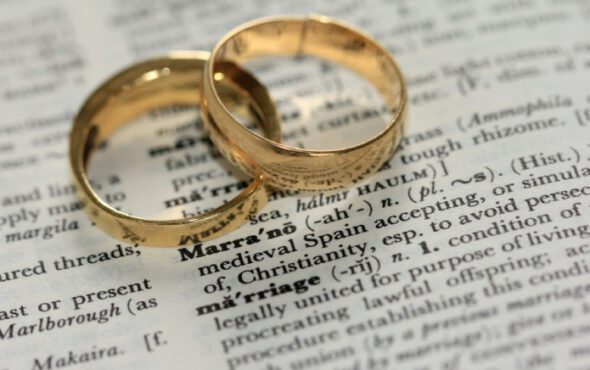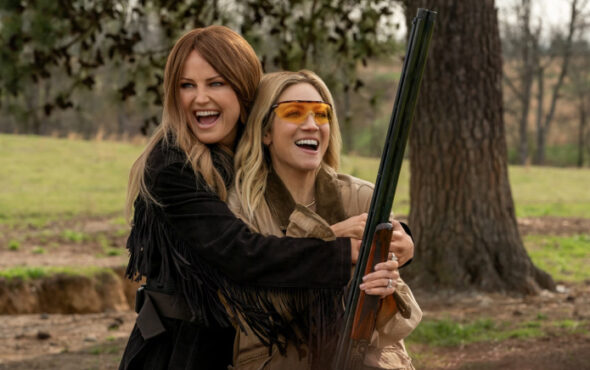
The Church of England will offer blessings to same-sex couples in civil partnerships and marriages, though they will still be unable to get married in church.
The motion was passed in all three of the Synod’s – the Church’s equivalent of a parliament – ‘houses’ following a near-eight-hour debate across 8 and 9 February.
The Archbishop of York, the Most Revd Stephen Cottrell, told the Synod that priests can still choose not to bless same-sex couples.
“No-one has to offer these services and no one will be disadvantaged if they don’t,” he explained.
Bishops will now finalise the wording of the new prayers, as well as issuing updated guidance on whether or not gay clergy should remain celibate before the Synod next meets in July.
READ MORE: Church of England apologises for “shameful” treatment of LGBTQ+ people
The motion also included a vote to “lament and repent” the failure of the Church of England to welcome members of the LGBTQ+ community, as well as acknowledging the harm many have experienced because of this exclusion.
As a result of the vote, same-sex couples will be able to go to Anglican churches after their legal marriage ceremony to request services including prayers of dedication, thanksgiving and a blessing.
“The offer of blessings is an insult”
The plans, which were first set out by bishops in January, have been slammed by LGBTQ+ activists for not going far enough given that same-sex couples are still unable to marry in church.
“I am deeply disappointed by the way the conservatives have consistently sought to undermine those of us who sought to move towards a @churchofengland that could embrace a plurality of views on sexuality,” said Jayne Ozanne, a gay Christian activist who chairs the Ban Conversion Therapy Coalition. “By continuing to tell LGB people that they cannot hope to get married any time soon in their church or that their desire for sexual intimacy is sinful, we send a message to the nation that few will understand.”
Ozanne also explained that she opted to abstain in the final vote because she “did not want to block a tiny step forward that some will welcome.”
She continued: “However, I personally will not be forced to eat breadcrumbs, on which I fear so many will choke.”
1/3 I am deeply disappointed by the way the conservatives have consistently sought to undermine those of us who sought to move towards a @churchofengland that could embrace a plurality of views on sexuality. By continuing to tell LGB people that they cannot hope to get married… pic.twitter.com/Xurmat94nR
— Jayne Ozanne (@JayneOzanne) February 9, 2023
Prior to the vote, Peter Tatchell, one of the UK’s most prominent human rights activists, described the offer of blessings as “an insult”.
“Blessings are what the church gives to pets like dogs and guinea pigs,” he continued. “The church’s stance is in defiance of the spirit of the Equality Act. It is against the wishes of most Anglicans, 55% of whom support marriage equality. We are not saying that churches must be forced to conduct same-sex marriages; only that those who wish to should no longer be barred by the Anglican leadership.”
Activists recently protested against the Church of England’s position on same-sex marriage
On 8 February, Tatchell, alongside Anglican LGBTQ+ campaigner Adam Chinery-North, co-organised a protest outside the Church of England’s General Synod at Church House in London as members arrived to debate and vote on the issue.
Protesters held signs with slogans such as “Stop Anglican discrimination! Marriage equality now!” and “Discrimination is not a Christian value!” written on them.
The Archbishop of Canterbury, Justin Welby, faced backlash after stating that the position on same-sex marriage was made to “seek the common good” though acknowledged it will “go too far for some and not nearly far enough for others”.
READ MORE: Same-sex marriage supporters stage protest at Church of England Synod
He has even been accused of failing to end the discrimination many LGBTQ+ people face in the Church of England.
Speaking on the day of the vote, Welby said: “I am supporting these resources, not I think because I’m controlled by culture, but because of scripture, tradition and reason evidenced in the vast work done over the last six years so ably by so many. I may be wrong. Of course I may.
“But I cannot duck the issue any more than anyone else here.”
Same-sex marriage is backed my a majority of Church of England members
Despite the Church of England’s position, a majority of members believe that same-sex marriage is a fundamental right.
More than half (55%) of respondents to a YouGov poll commissioned by the Ozanne Foundation said same-sex marriages should be allowed in the Church.
Less than one in 10 (9%) believed same-sex marriage to be “wrong” in some capacity – a decrease in comparison to recent years.



